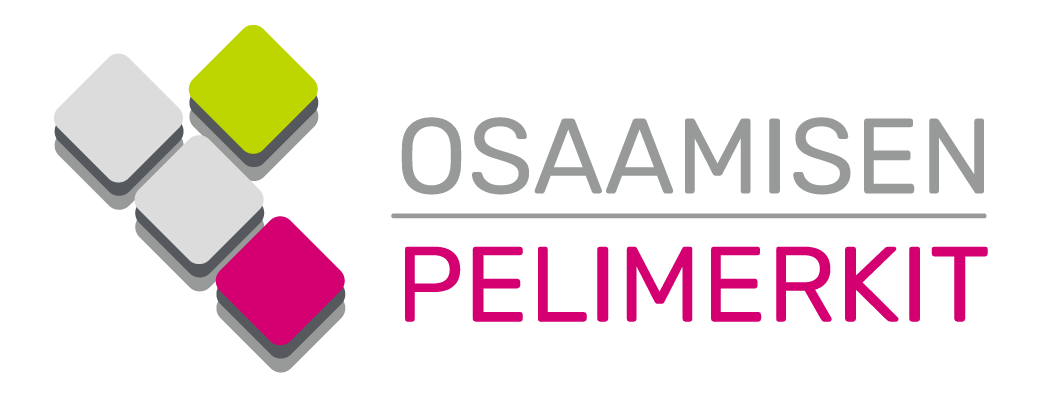Team, team, team! Those were the words that popped up top at BIT1 talk by Samuli Syvähuoko, a game industry veteran and the founder of investing company Sisu Game Ventures, while he was presenting the main ingredients for a great startup. Maybe the Baader-Meinhof phenomenon is taking hold of us – you know the situation when you bought your dream car and you start seeing them all the time and everywhere. Or maybe there is really something there in teams and teamwork that you should look a bit deeper into.
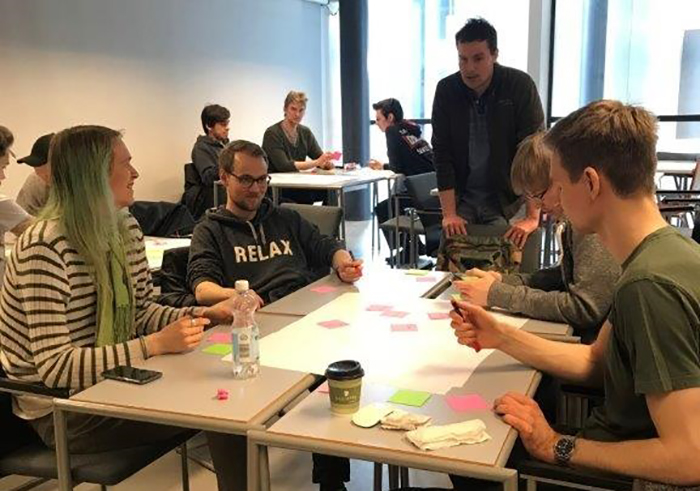
Practising teamwork. Photo: Annemari Kuhmonen.
At this point, one could ask that if teamwork is considered so important, how can you practice on becoming a great team player? Learning programming or math is a tough job but it’s still very much possible for anybody willing to put their mind and effort into it. Learning team skills on the other hand is a totally different animal as there is no tutorial on social behavior (well, maybe there is but you can’t change your profile in real life in the same way as in Facebook) that would enable you to master and deal with the complexities of other people and more importantly, your own.
From our point of view, a great team consists of individuals that are aware of their flaws and strengths. They use their strengths not to take advantage of or dismiss other people in order to boost their own excellence but to support others to excel. They give room for others to fill in when they find themselves overwhelmed. Everything in teamwork boils down to egos and personalities and how you are able to fit them together. Sometimes, no matter how hard you try, the team just does not work. Was there something that could have helped the team to work better? While you cannot change the way people behave, you can be prepared for situations where things go south.
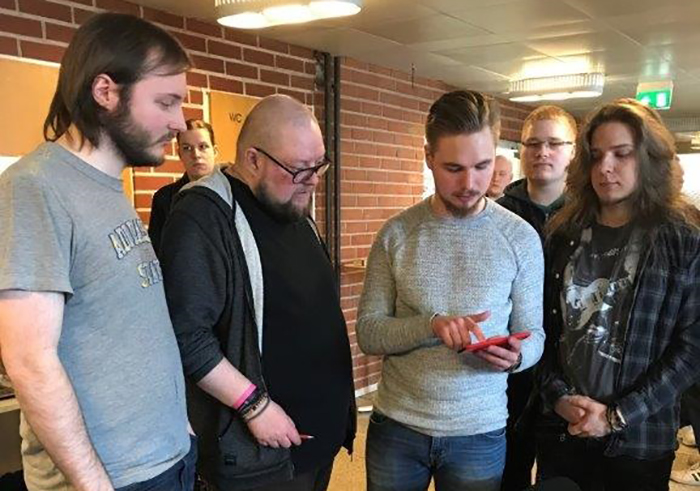
Team Wreckage showing their game to the judge Mikko Honkakorpi. Photo: Annemari Kuhmonen.
One of the Bit1 Game Award finalists Team Wreckage mentioned strong teamwork as their secret sauce to success. Our task as teamwork coaches is to give away the ingredients and the recipe for making that sauce. Our mission is to support the transformation of groups into teams and inspire great teamwork and collaboration. In order to facilitate team building and high performance we introduce some tools and methods that might keep the teams in the right track and help them to achieve the goal to publish their games, such as drafting a team agreement, including team norms and guidelines, clear goals and objectives, roles and responsibilities of team members and team’s play rules. Or simply having fun together!
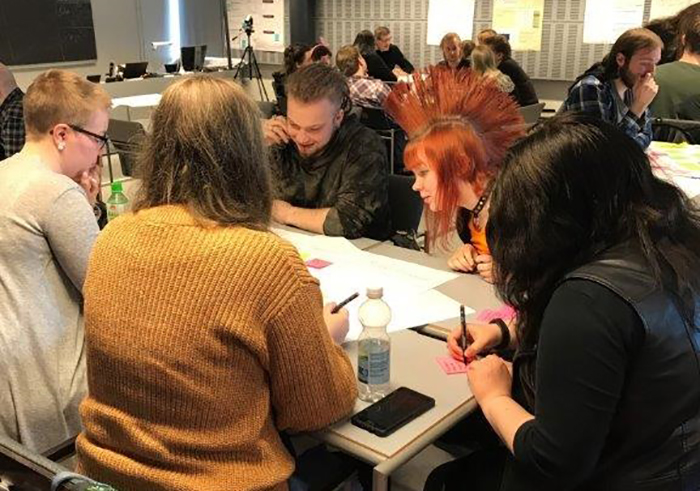
Teamwork assignments in a game project. Photo: Annemari Kuhmonen.
In the team review workshop and video assignments, many teams reflected that communication inside the team should be improved. In game industry job ads excellent communication skills are highlighted in companies like Supercell, Rovio, Housemarque and Next games. Making games is stated to be all about working under pressure, deadlines and time constraints in a highly collaborative, interdisciplinary and iterative environment, and getting along with people who have different skill sets and who have different ways of seeing the world, but who/that are all very passionate about their own work. Sounds scary? Maybe, but it’s not a mission impossible to handle all this.
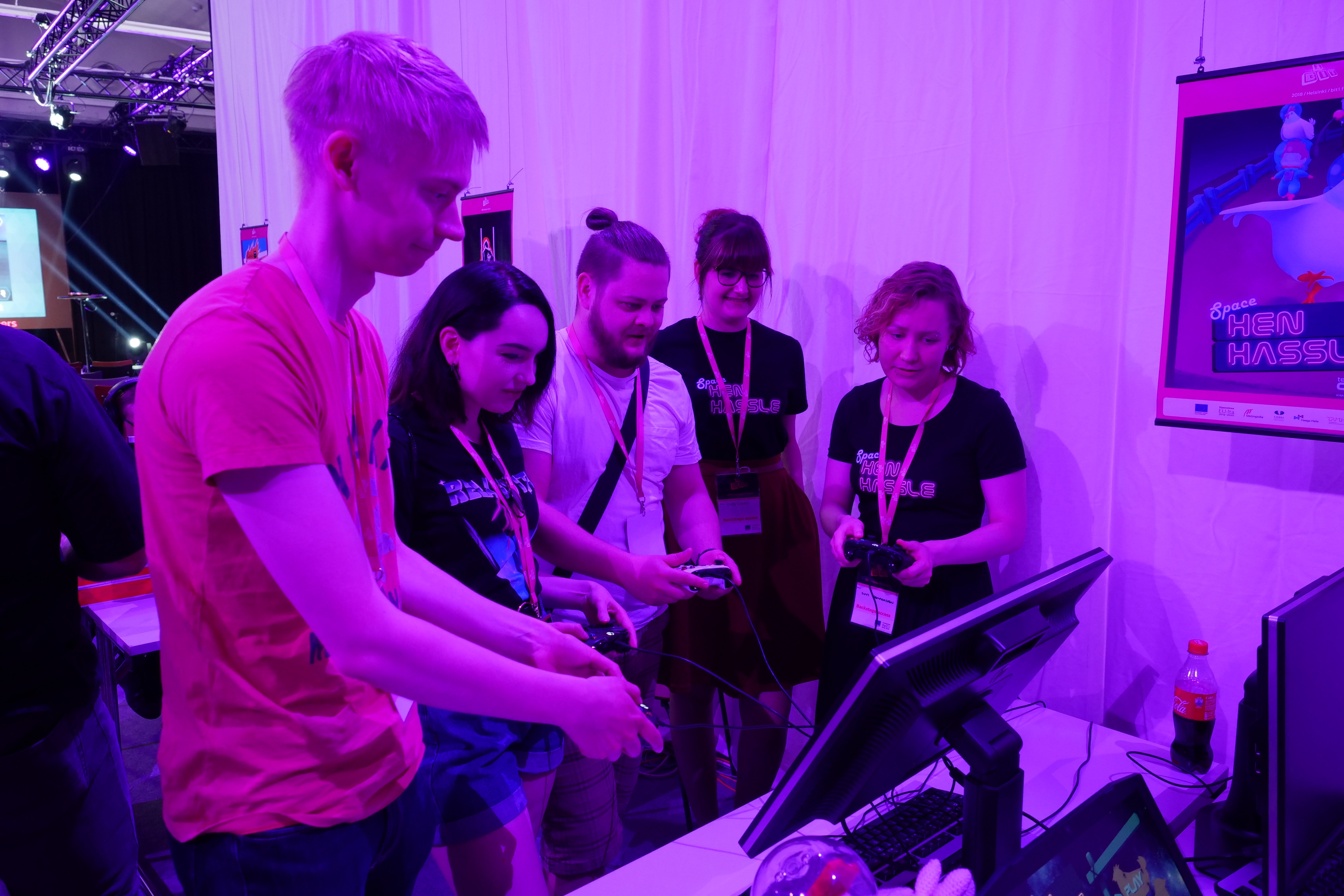
Team Space Hen Hassle showing their game in Bit1. Photo: Tuukka Lindholm.
How to become a better communicator then? How to be able to explain complex things in a simple way? How to give and receive feedback? This is something that we practice in hands-on team coaching. Google has identified psychological safety to be the X-factor in the most successful teams. This means that team members feel safe to take risks and be vulnerable in front of each other, they are not afraid of asking questions or making mistakes. This can be encouraged e.g. by regular follow-up meetings and assessment discussions. For better communication the spring student teams found very concrete solutions like – We started using Discord almost every day. – We implemented Monday meetings and open discussions on the playability and direction of the game. Well done!
Anyway, it all starts with knowing yourself and leading yourself. Understanding your own personality type, and those of your team members could help with team collaboration. At least it would cause you no harm to discover more about yourself by using one of the personality tests available, e.g. the Myers-Briggs Type Indicator, the Enneagram Type or the Color Code. Have a great adventure of learning more about yourself!
About the writers:

Annemari Kuhmonen
Annemari Kuhmonen is a project management and teamwork coach, who works as a Senior Lecturer in Laurea’s P2P (peer-to-peer) programme guiding business students in projects. She has a long experience both in corporate and student coachings and working with different projects in international banking and SME sector as an entrepreneur, as well as in education. Annemari is enthusiastic about the gamification in business, development of educational games and collaborative learning environments.

Heikki Seppälä
Heikki Seppälä is a project manager at Laurea UAS. He has been working in multi-national teams in software-intensive projects with a focus on virtual learning platforms. He is also guiding project management students as part of Chips for Game Skills project. Heikki’s own International company Kidous provides a digital service for early childhood education professionals. He is a passionate gamer!
